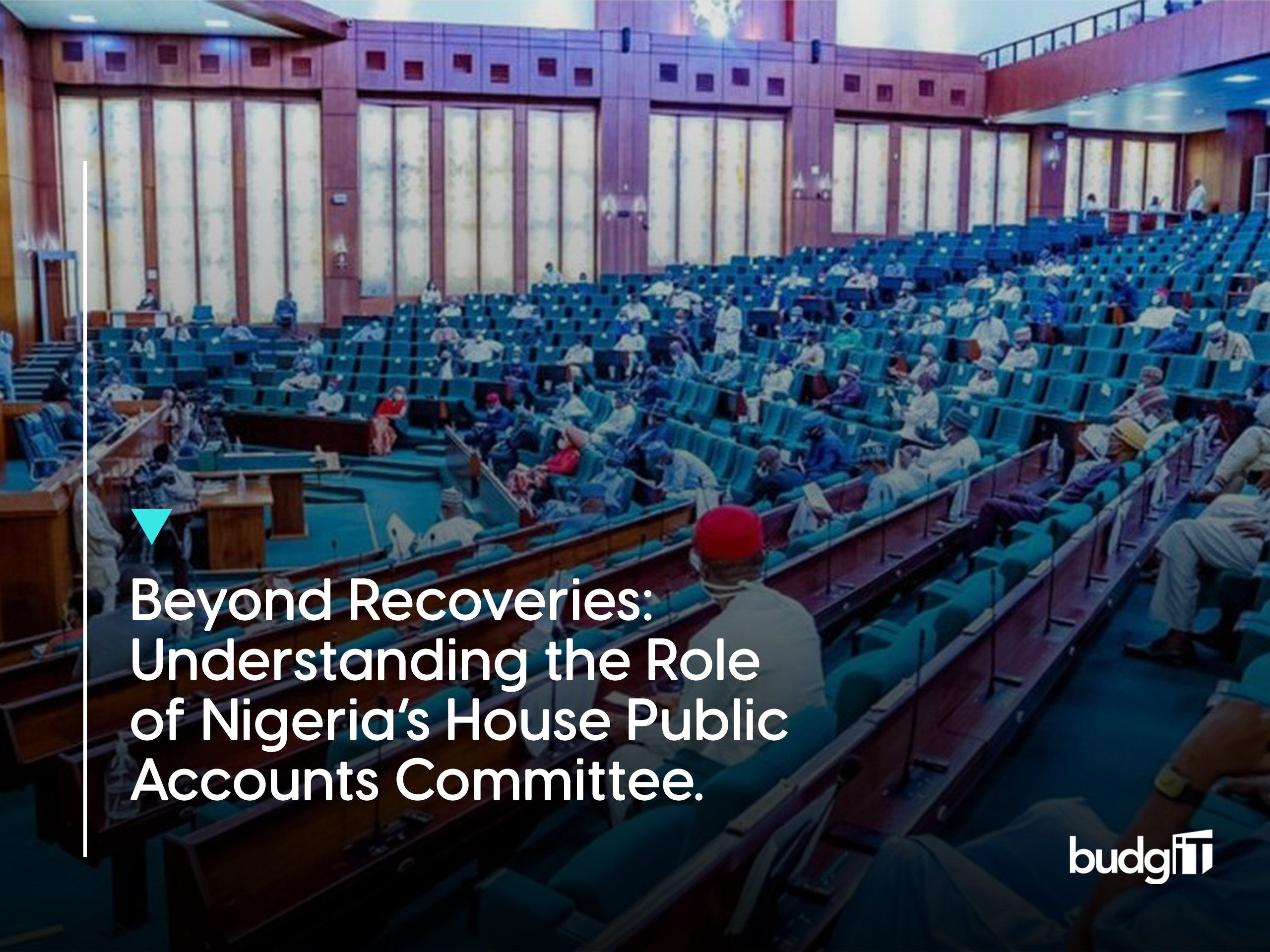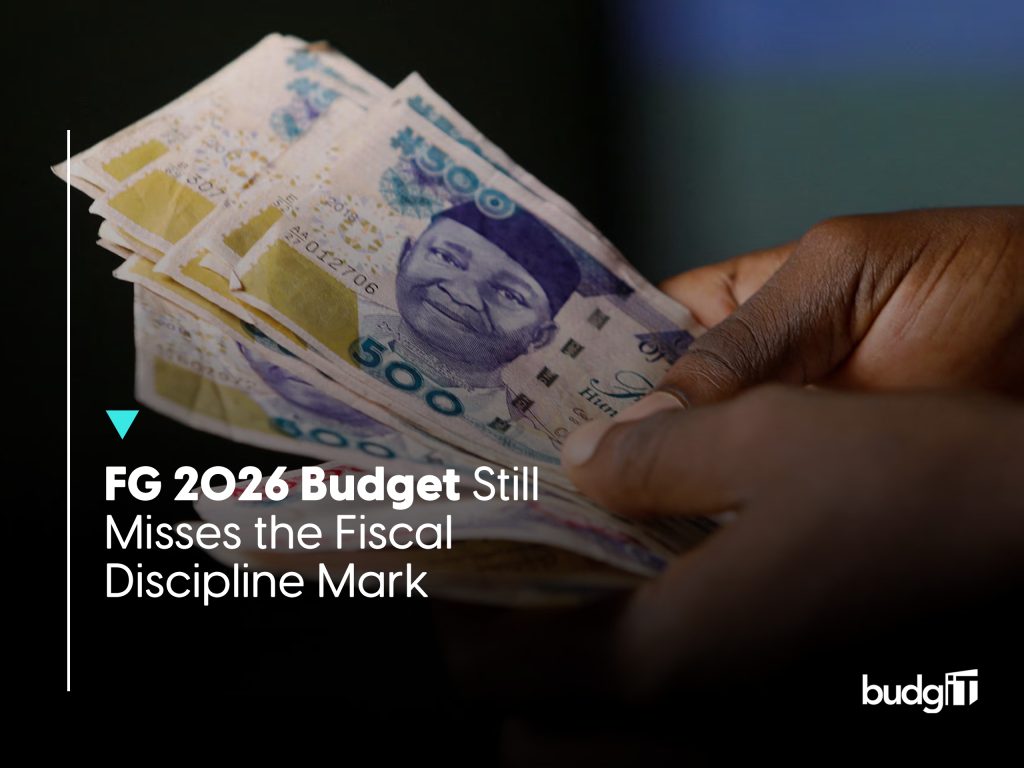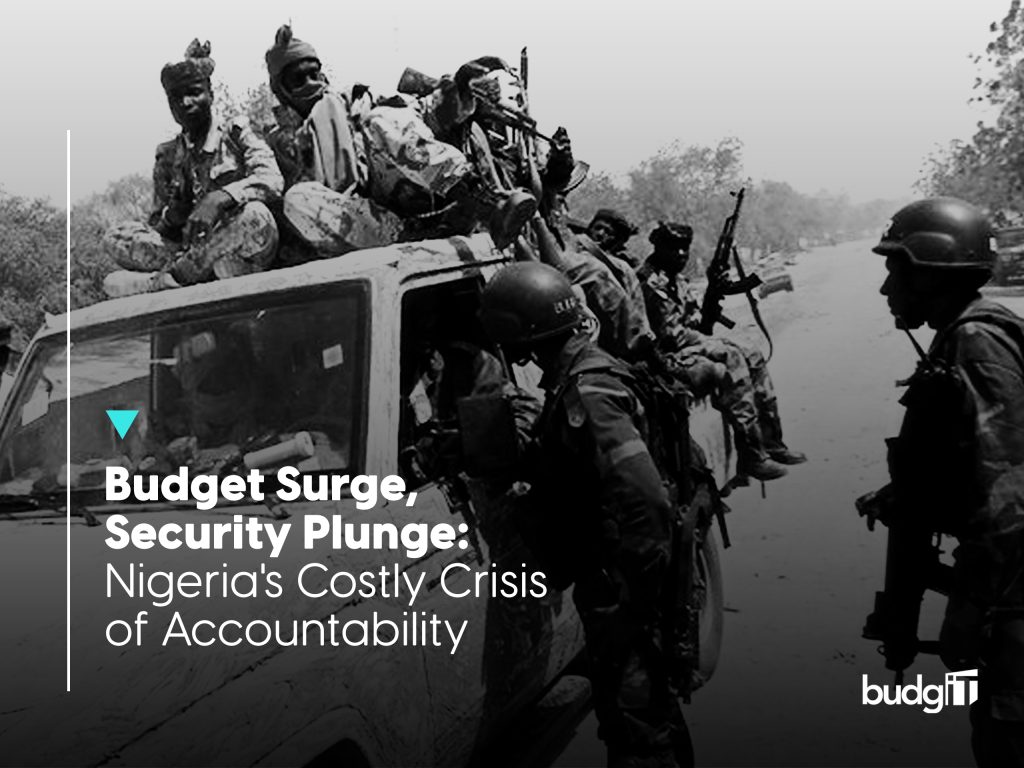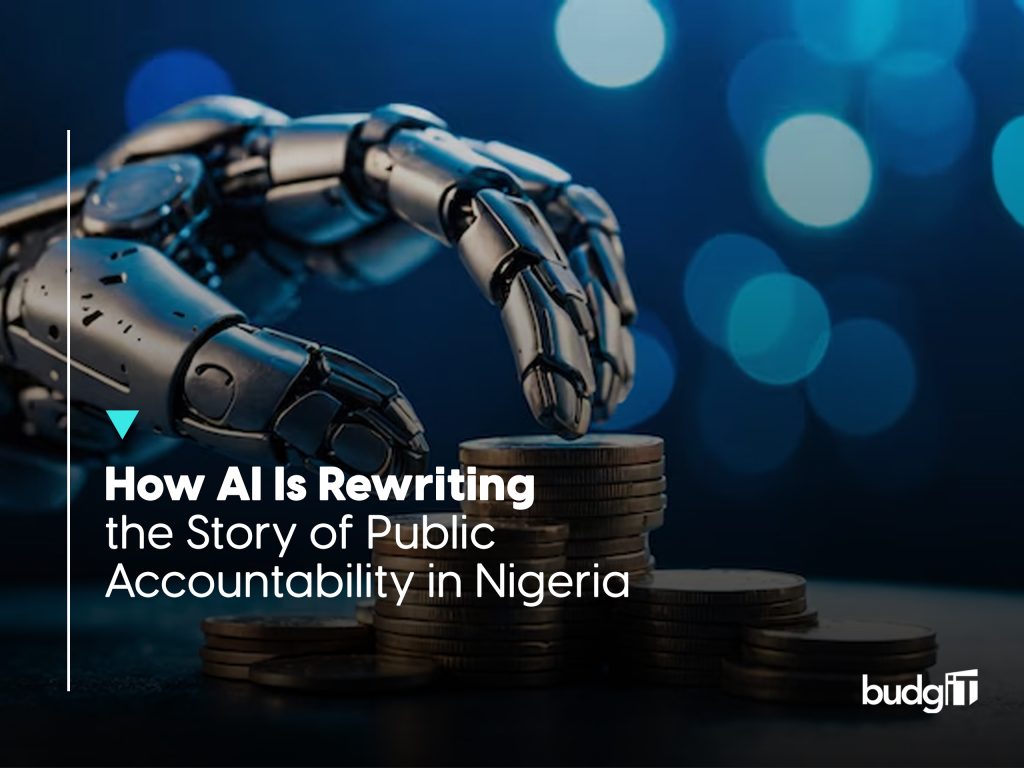In Nigeria’s complex governance landscape, the House of Representatives Public Accounts Committee (PAC) is constitutionally empowered to scrutinise how public funds are managed. The historical scrutiny of the spending of the King has today become a core function of the parliaments of liberal democracies. Though it has evolved from one that focused on the interests of a few to the interests of the many, it remains fundamentally about oversight. At its core, PAC’s mandate is straightforward: examine the Auditor-General’s reports, investigate financial irregularities, summon responsible officials, and recommend sanctions or reforms. However, despite the weight of this mandate, the PAC’s work has historically flown under the radar for most citizens. Its processes are technical, reports are rarely accessible, and outcomes are often framed as isolated legislative victories rather than public accountability wins. Citizens, however, have a stake in understanding and following the PAC’s work. After all, every unremitted Naira, every audit infraction, directly affects national development and public service delivery. For Nigerians, the critical question is not whether PAC exists, but whether it functions in a way that produces real accountability outcomes beyond episodic recoveries.
What Should Citizens Expect?
At a minimum, citizens should expect the PAC to act as a fiscal watchdog, not only recovering misused or unremitted public funds but also proactively preventing leakages through systemic reforms. The PAC’s public hearings, investigation reports, and audit reviews should be regular, accessible, and transparent. Citizens should expect clear updates on: How much has been recovered? Which Ministries, Departments, and Agencies (MDAs) are being investigated? What structural reforms are being proposed to prevent recurring financial mismanagement?
Is This Committee Any Different?
While the 10th House PAC has shown signs of increased activity—recovering over N86 billion within months, pursuing oil and gas companies, and digitising its hearings—structural challenges persist.
First, the focus remains mainly reactive. Recoveries are pursued after infractions, but there’s little evidence that the PAC is addressing the institutional weaknesses enabling these lapses. Investigations focus heavily on extractive sector debts, with less attention paid to systemic fiscal leakages in sectors such as health, education, infrastructure, and defence.
Secondly, the committee’s reliance on closed-door investigations undermines its public oversight role. Reports are laid before the House but not proactively disseminated to the public. Transparency should not depend on whether the media covers a hearing or not.
In short, while there are procedural improvements, the PAC’s approach still largely mirrors that of previous committees: it is focused on financial recoveries and limited in its structural reform and public engagement.
What Happens Next?
The PAC’s current activities suggest a ramp-up in investigations, especially around oil and gas revenues and remittances through the REMITA platform. With over N9.4 trillion flagged as outstanding in the 2021 audit report, further investigations seem inevitable. But whether these investigations will lead to deeper systemic reforms is uncertain. Key next steps should include:
First, the Public Accounts Committee must prioritise the enforcement of the newly passed Audit Bill. This legislation, if properly implemented, grants the Auditor-General’s Office greater independence and authority to conduct audits without undue interference. For too long, Nigeria’s audit processes have been constrained by institutional weaknesses and political bottlenecks, limiting their effectiveness in tracking public funds. The PAC must now ensure that this law transitions from paper to practice. Enforcing compliance means not only monitoring audit submissions but also ensuring that the Office of the Auditor-General has the budgetary resources and operational autonomy needed to function as an independent watchdog. If PAC focuses solely on reacting to audit reports without strengthening the audit function itself, Nigeria risks perpetuating a weak oversight chain where problems are detected too late for prevention.
Second, PAC must institutionalise public hearings and open reporting as a standard governance tool, not an occasional courtesy. Transparency in legislative oversight cannot depend on political goodwill or the discretion of committee leadership. Open hearings, accessible records of investigations, and periodic public reports must be formalised as standard operating procedures for the PAC. This would ensure that citizens, civil society organisations, and the media can track investigations in real-time and hold both lawmakers and public officials accountable for outcomes. Transparency must be embedded in the process, not merely celebrated in outcomes. Currently, much of PAC’s work remains obscured from public scrutiny until recoveries are announced.
Third, the PAC’s oversight must extend beyond the oil and gas sector, which currently dominates its investigations. While oil revenues represent a significant portion of national income, other sectors—such as infrastructure procurement, health financing, education funding, and defence expenditure—remain equally vulnerable to financial mismanagement and corruption. By focusing disproportionately on oil recoveries, the PAC risks creating oversight blind spots where billions in public funds could continue to be siphoned without scrutiny. A more holistic, sector-wide approach to investigations is needed to ensure that financial accountability is not selective. Oversight must target all sectors where public resources are allocated, spent, and reported—no exceptions.
How Should Citizens Engage?
For most Nigerians, legislative committees like the Public Accounts Committee (PAC) often feel distant and abstract. Oversight hearings, audit reports, and parliamentary debates are typically seen as technical processes that happen in Abuja, disconnected from the realities of everyday life. Yet, in practice, the work of PAC has direct implications for public service delivery, infrastructure development, and national economic stability. Every Naira lost to corruption or inefficiency is a school unbuilt, a hospital unequipped, or a road left impassable.
This is why citizens—especially civil society organisations, community leaders, media practitioners, and ordinary taxpayers—need to take a more active role in following and influencing the work of the PAC. First, citizens must begin monitoring the committee’s activities wherever possible. Although the National Assembly’s communication structures remain generally opaque, published reports, media coverage, and updates from civil society provide entry points. Citizens should pay attention to when public hearings are announced and demand that these sessions be broadcast or reported on, particularly when they concern sectors affecting their lives, such as health, education, or infrastructure funding. Reports tabled before the House of Representatives, while often dense, can be simplified by media organisations and civic platforms to enhance public understanding.
Second, Nigerians should hold their constituency representatives accountable for how they engage with the PAC’s findings and processes. Legislators represent citizens in the oversight process, not just in lawmaking. Citizens should demand regular updates from their representatives, whether through formal constituency town halls, local media engagements, or social media platforms. Representatives should be pressed to explain ongoing investigations, outline the recoveries made, and describe the proposed reforms. This would require a fundamental rethinking by citizens regarding how to interact with and communicate with their legislators. It starts by placing a call, sending an email, and ensuring a timely and proper response.
Third, civic technology platforms like Tracka can help bridge the gap between legislative processes and community-level monitoring. Citizens can use such platforms to track identified budget leakages, monitor which MDAs are under investigation, and follow the status of reported recoveries. By contextualising national fiscal oversight issues in community realities, platforms like Tracka help turn abstract audits into relatable, actionable information for everyday Nigerians.
Fourth, the Executive must demonstrate its interest and investment in the PAC’s work by implementing administrative sanctions and penalties for officers found to be complicit or guilty of breaching clear duties and financial regulations. Whether this is an administrative corrective remedy within the agency or a full-blown investigation by the Economic and Financial Crimes Commission (EFCC), ICPC (Independent Corrupt Practices Commission (ICPC) or the Nigerian Police, the Executive must remember it is not a spectator but a participant in strengthening the Public Financial Management ecosystem.
Finally, there is a need for coordinated public pressure demanding that the PAC institutionalise transparency in its operations. Citizens and civic groups should advocate for the committee’s reports, hearings, and investigative updates to be routinely made public, not as a favour to the public, but as a standard obligation of legislative oversight. Transparency should not be at the discretion of committee leadership; it should be an embedded accountability practice. Public oversight will only improve when citizens see fiscal accountability as their responsibility, not just the legislature’s. The PAC does not exist in isolation. It is a public body, funded by taxpayer money, with a mandate to safeguard national resources on behalf of the people. If Nigerians remain disengaged, the committee’s work risks falling back into the pattern of selective investigations and inaccessible reports.
What Should Government Agencies Expect?
For Ministries, Departments, and Agencies (MDAs), the Public Accounts Committee’s renewed focus signals a period of heightened scrutiny, particularly over remittances to the Federation Account and compliance with financial regulations. Agencies should expect more direct investigations, document requests, and public hearings. However, whether this oversight will lead to actual sanctions or meaningful structural reforms remains uncertain.
The Executive and MDAs should not view this scrutiny as political attacks but as constitutional obligations. The PAC’s work is rooted in checks and balances designed to protect public resources. Agencies that treat investigations defensively risk further undermining public trust. Instead, MDAs should respond with transparency and cooperation. Proactively submitting audit reports, addressing identified weaknesses internally, and engaging constructively with PAC inquiries can reduce friction and position agencies as reform-minded rather than reactive.
At first glance, Nigeria’s 10th House Public Accounts Committee (PAC) appears active, recovering significant sums from oil companies, banks, and other revenue actors. Yet, citizens and public finance observers must examine these results critically. Are these recoveries early signs of a functional, systemic oversight framework, or are they simply isolated victories that could fade once media attention shifts?
Accountability cannot be defined by how much money the PAC manages to claw back after mismanagement occurs. True oversight is proactive, systemic, and institutional. Recoveries, while important, address symptoms of financial mismanagement, not its root causes. Without transparent public reporting, without reforms that fix the structural gaps enabling revenue leakages, and without deliberate civic engagement that brings citizens into the process, the PAC risks following a familiar pattern: high-profile recoveries that fail to change the underlying culture of weak public financial management.
This is why Nigerians must not be content with press statements or recovery figures. Citizens need to monitor the processes behind those numbers. Are reports being published and debated publicly? Are the reforms PAC recommends being enforced? Are the same MDAs and sectors repeatedly flagged for similar issues? These questions, not the amounts recovered, will determine whether the PAC is genuinely building a culture of accountability or simply firefighting. Until oversight becomes routine, transparent, and systemic, fiscal mismanagement will remain the rule, not the exception.
Nigerians should keep watching.



